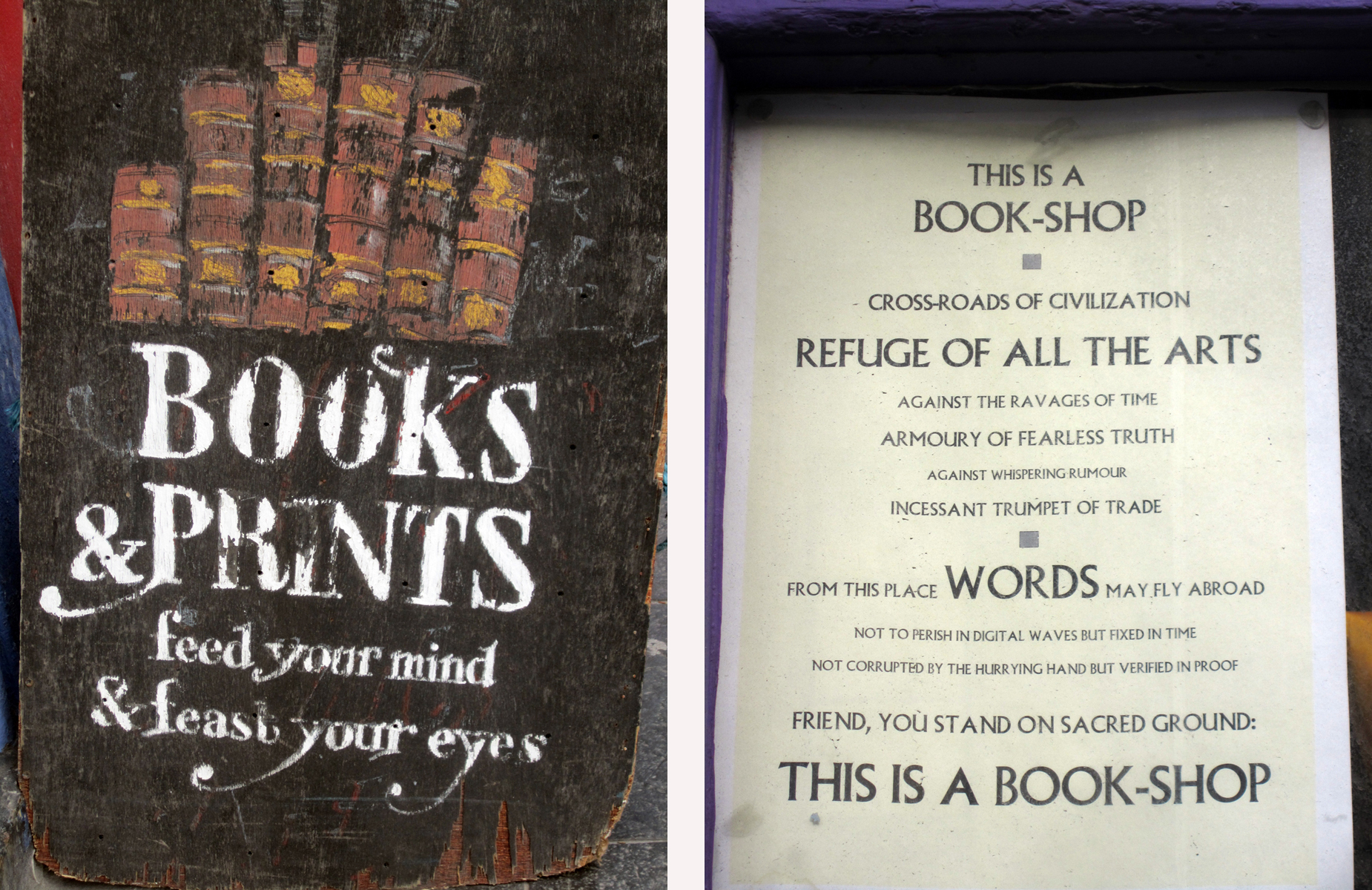By: Kevin Grace
Recently returned from a study tour to Edinburgh, Scotland over spring break, the students in the University Honors Program seminar “The Culture of Books and Reading” added one of their assignments to the ARB website – a story entitled “The Sin-Eaters Ghost.” A group project written by each student contributing a page, the story is just one of the assignments for this course in which the traditional and emerging reading habits and the heritage of books are explored in cultures around the world.
Besides researching the rare book holdings of the Archives & Rare Books Library, the students constructed books of their own with an eye toward understanding how ethnic, religious, and national cultures have regarded the 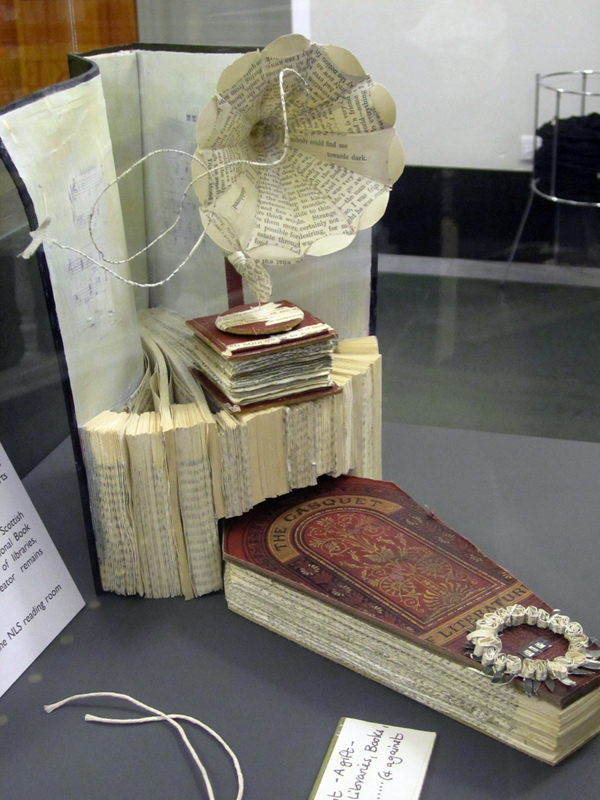 printed word now and in the past. They examined forms of the book from cuneiform to contemporary digital texts, learning about cultural approaches over time to sacred, secular, and political writings, and, to understand the technical and cultural contexts for contemporary reading habits from graphic novels to social media. The students discussed how the reading of tweets furthered the development of the Arab Spring rebellions, how the current political climate in Turkey dictates a response to citizens keeping informed through e-reading habits, and how a worldwide organization like Room to Read provides books, libraries, and educational opportunities in developing countries, particularly for girls.
printed word now and in the past. They examined forms of the book from cuneiform to contemporary digital texts, learning about cultural approaches over time to sacred, secular, and political writings, and, to understand the technical and cultural contexts for contemporary reading habits from graphic novels to social media. The students discussed how the reading of tweets furthered the development of the Arab Spring rebellions, how the current political climate in Turkey dictates a response to citizens keeping informed through e-reading habits, and how a worldwide organization like Room to Read provides books, libraries, and educational opportunities in developing countries, particularly for girls.
And, they explored how books and written language constantly change and sometimes are lost and found through their reading of the seminal dystopian novel, Riddley Walker, by Russell Hoban.
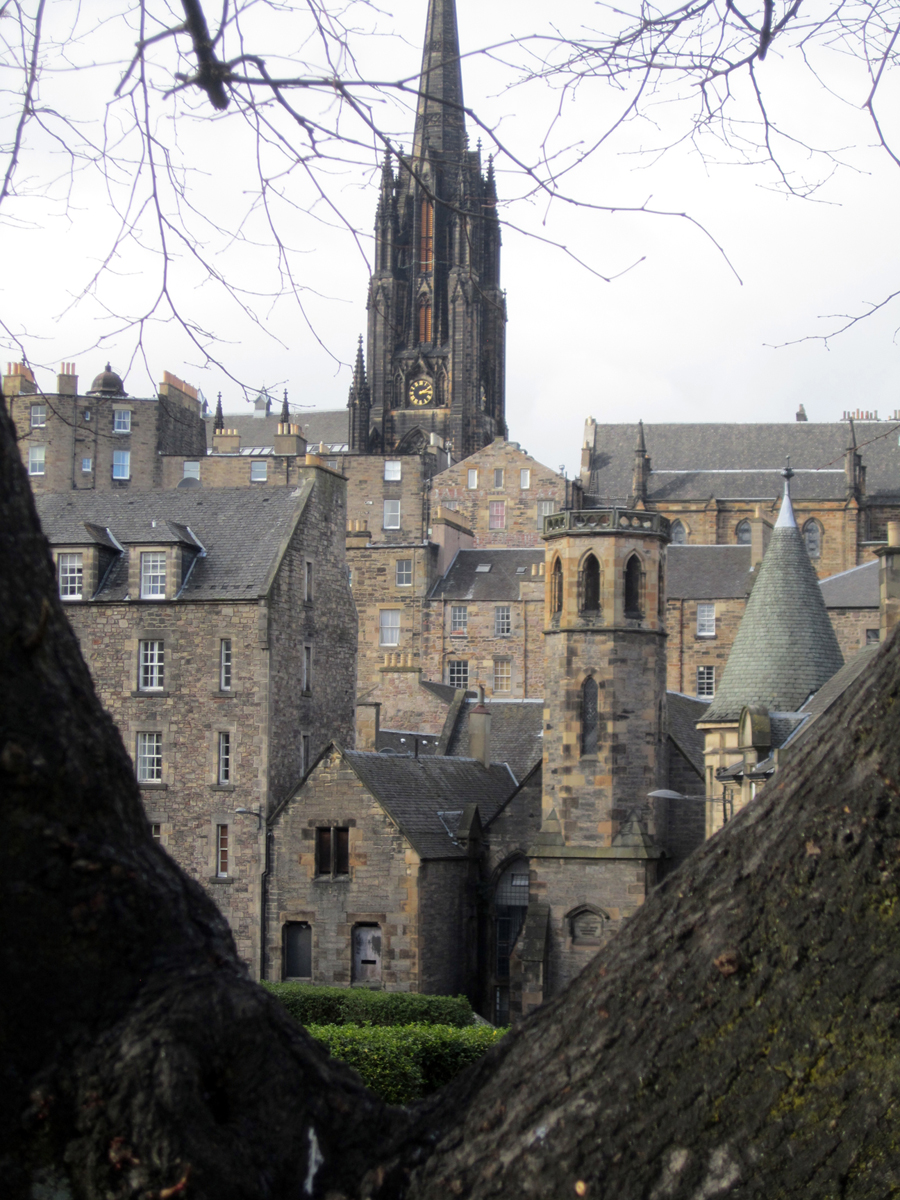 The study tour to Edinburgh was developed because this beautiful city was the first to be designated a UNESCO City of Literature in 2004, and because it is a key center for the seminar’s topics. From Scotland’s misty heritage of poets, legends, ghosts, and storytellers that gave rise to a culture’s legacy of books and reading, to its inspiration for Harry Potter and its influence on reading behaviors in the 21st century, Edinburgh proved to be a vibrant component of the course content.
The study tour to Edinburgh was developed because this beautiful city was the first to be designated a UNESCO City of Literature in 2004, and because it is a key center for the seminar’s topics. From Scotland’s misty heritage of poets, legends, ghosts, and storytellers that gave rise to a culture’s legacy of books and reading, to its inspiration for Harry Potter and its influence on reading behaviors in the 21st century, Edinburgh proved to be a vibrant component of the course content.
The ghost tale was developed with the intent that students would learn how stories are passed from person to person, eventually becoming part of a reading legacy. As one student wrote a page of the story, it was passed on to another and over the course of the week’s study tour, 20 students, one teacher, and an advisor participated in its creation. The group effort is evident, of course, with some disjointedness as students took the story in various directions and played 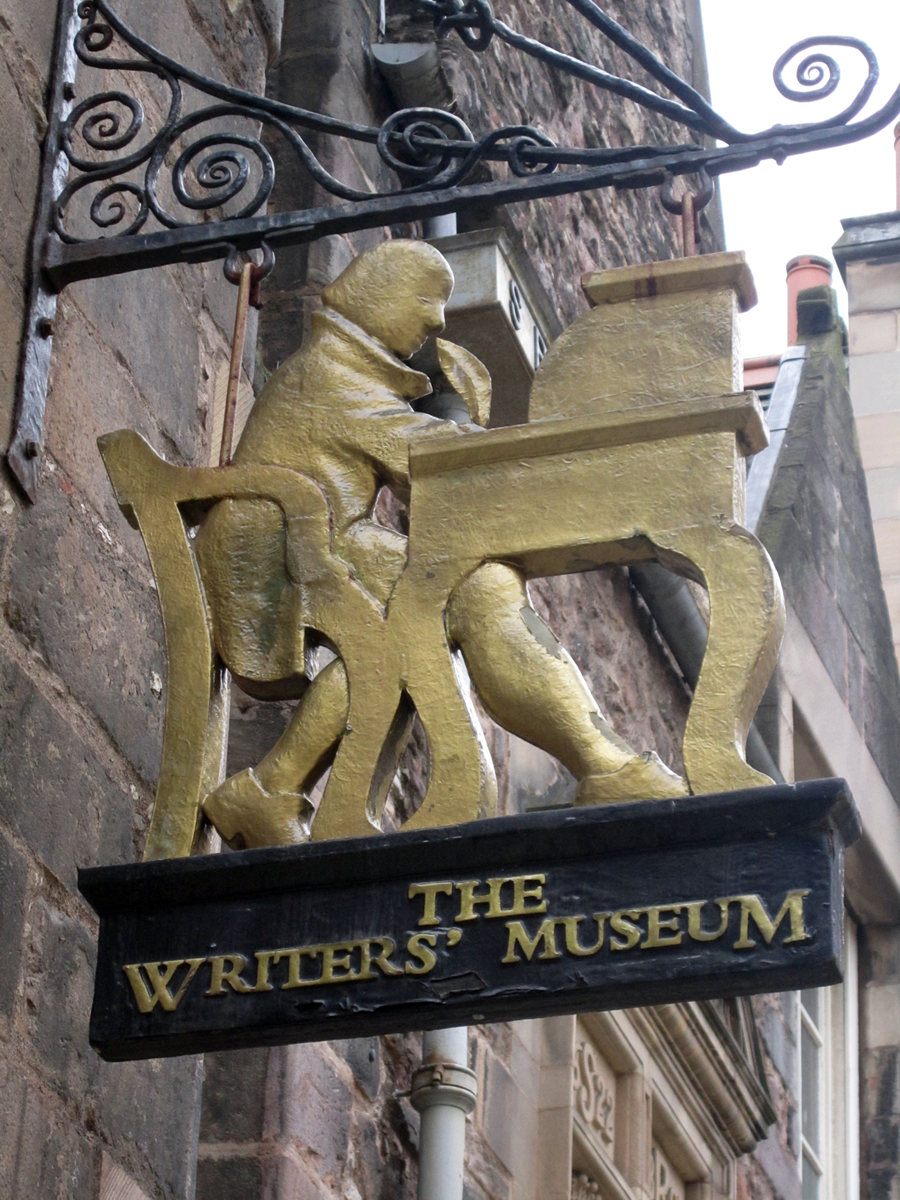 with the traditional role of sin-eaters, those socially marginal individuals who ritually consume a meal next to a dead person in order to absorb the deceased’s sins and ease the path to eternal salvation. So, while the narrative is a bit confusing now and then, there is a beginning, a middle, and end with a plot development reflecting the students’ travels in Edinburgh to graveyards, underground vaults, and learning about the Scottish heritage of body snatchers. ARB intern and seminar student, Melissa Schirmer, designed the web exhibit and illustrated it with seminar photographs taken on the tour, and ARB student worker and also a seminar student, Tyler Morrison, scanned the original handwritten pages to include with the story. Readers can find the story here: http://www.libraries.uc.edu/exhibits/ghoststory/. Because ARB’s Urban Studies Collection seeks to provide original source material, the story has been linked on that web page.
with the traditional role of sin-eaters, those socially marginal individuals who ritually consume a meal next to a dead person in order to absorb the deceased’s sins and ease the path to eternal salvation. So, while the narrative is a bit confusing now and then, there is a beginning, a middle, and end with a plot development reflecting the students’ travels in Edinburgh to graveyards, underground vaults, and learning about the Scottish heritage of body snatchers. ARB intern and seminar student, Melissa Schirmer, designed the web exhibit and illustrated it with seminar photographs taken on the tour, and ARB student worker and also a seminar student, Tyler Morrison, scanned the original handwritten pages to include with the story. Readers can find the story here: http://www.libraries.uc.edu/exhibits/ghoststory/. Because ARB’s Urban Studies Collection seeks to provide original source material, the story has been linked on that web page.
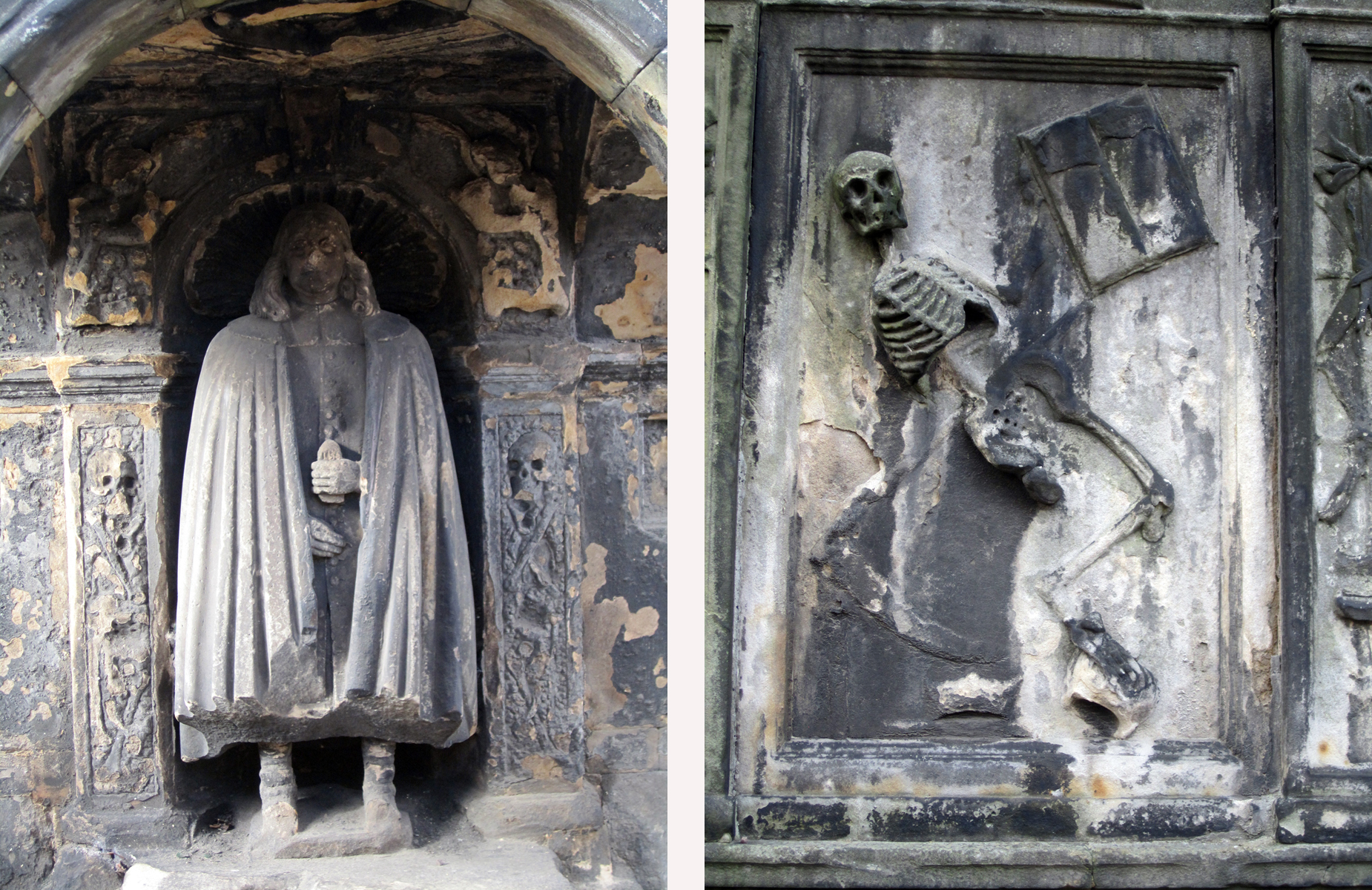
While in Edinburgh, the students conducted interviews and research on contemporary reading habits, emerging social media, and the use of books. They were able to talk with people from several nations and areas of the world, including France, Ireland, India, Scotland, Portugal, and the Middle East, and in one instance they interviewed a deaf woman while her husband translated. The students will consider their findings and submit a formal critical analysis. Additionally, as part of understanding the future of biographical and historical research beyond traditional sources, during the course of the semester each of the seminar students looked at a week of UC President Santa Ono’s tweets from September to February, compiling a biographical sketch based upon those messages.
By learning how various world cultures and sub-cultures regard the printed word and the role of books in their respective societies, the students have a greater understanding of global approaches to heritage and the immense power of reading and education.
To learn more about the Archives & Rare Books Library and its holdings, please call us at 513.556.1959, email us at archives@ucmail.uc.edu, or find us on the web at http://www.libraries.uc.edu/libraries/arb/index.html. We are located on the 8th floor of Carl Blegen Library.


